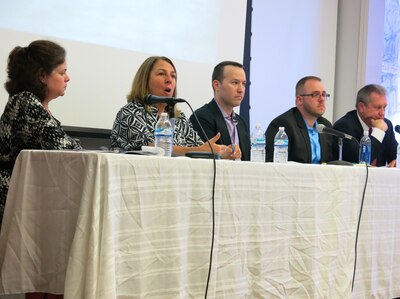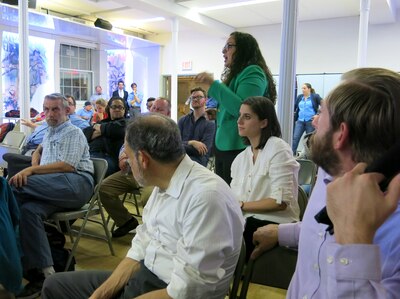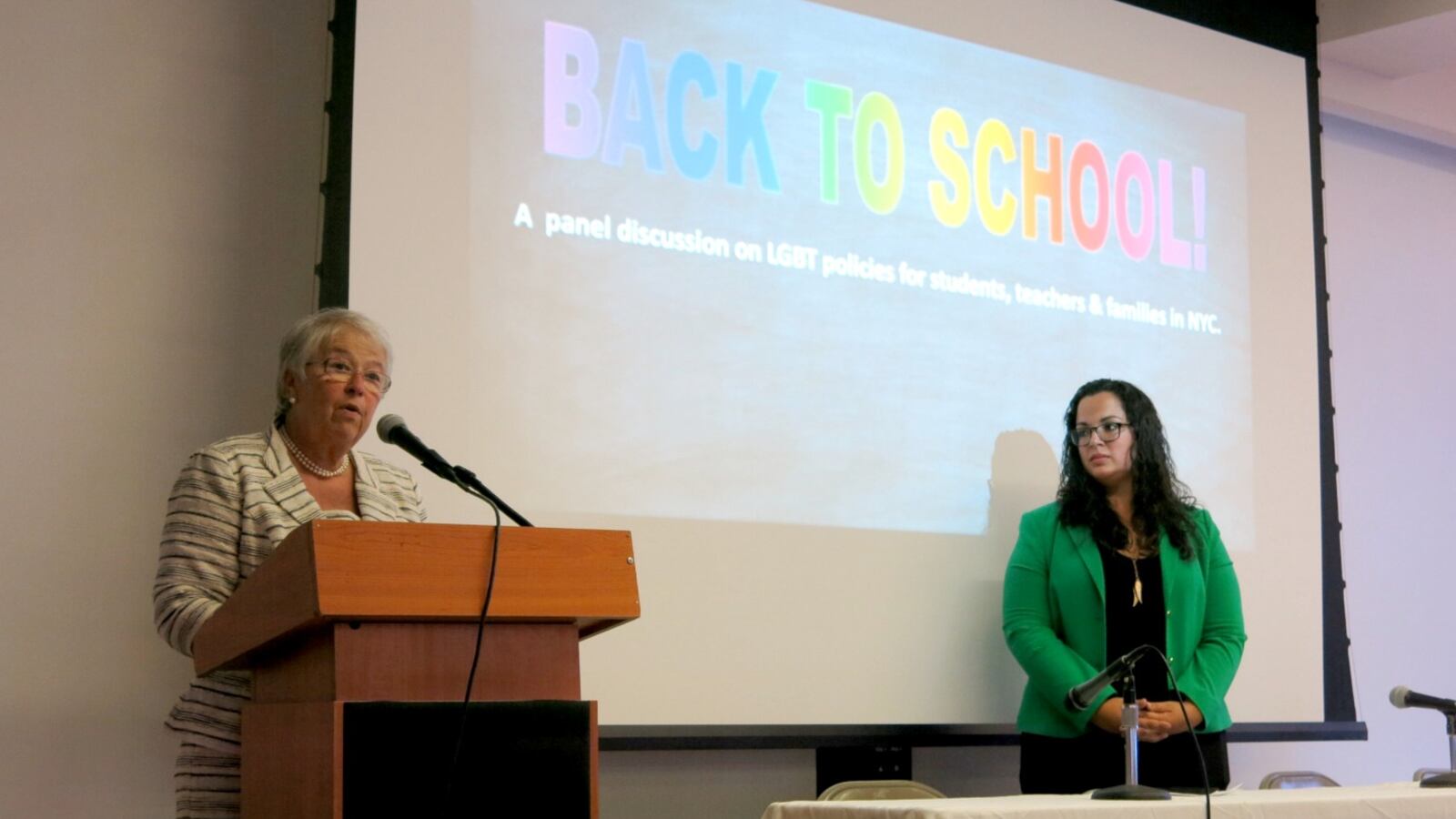In the span of just a few months this year, the city’s schools became more welcoming places for lesbian, gay, bisexual and transgender students, advocates and lawmakers said Wednesday during a discussion hosted by an LGBT political club.
Since February, the city’s education department has issued guidelines to help schools support transgender students, the schools chancellor encouraged educators to discuss LGBT issues with students, and the state incorporated the gay rights movement into its history standards, speakers noted at the talk, which Chancellor Carmen Fariña and two other school officials attended.
But, they said, the city could still do much more to embrace all students.
Transgender students can still be restricted from using certain restrooms or playing competitive sports under the new guidelines. Bullying is still a major issue, yet many school staffers and students get little training on how to prevent it. And it is unclear if the city’s new social studies curriculum will incorporate gay history, they pointed out.
“We need to have a gay pride celebration in every school. We need to have a gay-straight alliance in every school,” said City Councilman Daniel Dromm, a former Queens elementary school teacher who made headlines years ago when he came out as gay. “I’m tired of waiting.”

Dromm, who chairs the council’s education committee, held a hearing on LGBT students in February that Fariña attended. Soon after, she sent principals a memo promoting classroom lessons designed to give students a chance “to gain insight on and sensitivity toward the experience of their LGBT peers.”
On Wednesday, she said she had recently had such a discussion with her eight-year-old grandson, who said he sympathized with a classmate who is “a girl that wishes she was a boy.”
“It’s really, really important that we have these conversations with our kids,” Fariña said. She said that the 200 new school guidance counselors hired this year could help facilitate those discussions.
Rose Christ, vice president of the Stonewall Democratic Club of New York City, which hosted the discussion, said the club did not know of any previous chancellor who had addressed “an LGBT organization or spoken at a public LGBT event” focused on schools.
“It’s historic that she was here tonight,” Dromm said about Fariña, who left after making her brief remarks. The officials in charge of school guidance counselors and student safety stayed and participated in the discussion.
The education department released its first-ever transgender student guidelines earlier this year.
They say that schools should allow students to dress in a way that matches their gender identity and should use students’ preferred name and pronoun, except on official records. The guidelines are less clear about which restrooms and locker rooms students may use, or whether they can participate in contact sports, saying that “the safety and comfort of all students” must be considered.
The policies represent a “tremendous step forward,” said panelist Michael Silverman, executive director of the Transgender Legal Defense and Education Fund. But they could still be improved, he added. For instance, a transgender student who identifies as a boy but is not allowed to use the boys’ restroom “no longer feels like just another boy.”

While the state’s recently adopted social-studies standards cover gay history for the first time — meaning that high-school students could be tested on it — it is unclear whether the city’s soon-to-be-released history materials will include lessons on those events. Fariña did not resolve that question when asked Wednesday, saying only that she was open to discussing it further.
Since 2008, the city has required every school to designate an anti-bullying liaison and create an anti-bullying plan. Principals must train staff members on the city’s anti-discrimination policies, which prohibits mistreatment based on gender and sexuality, and students must receive at least one lesson on the discipline code, according to a department spokeswoman.
But Dromm and others noted during the discussion that the city does not require teachers to use its “Respect For All” lesson materials, and schools’ anti-bullying liaisons are the only staffers required to attend two-day trainings. Dromm added that when educators do talk about bullying with students, they sometimes leave LGBT issues out of the discussions.
The city does not record students’ gender identity or sexuality when documenting instances of school bullying or bias, making it difficult for advocates to spot trends, the panelists noted. Elayna Konstan, head of the department’s Office of Safety and Youth Development, said her office is still “exploring that with our lawyers.”
One panelist said the city should not ask students for that information, while others said the data is crucial for holding the city accountable for the safety of LGBT students.
“Our invisibility is our biggest enemy,” Dromm said.

